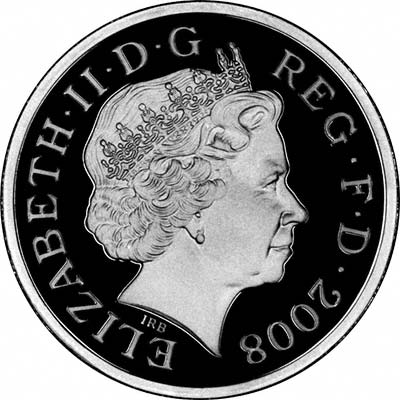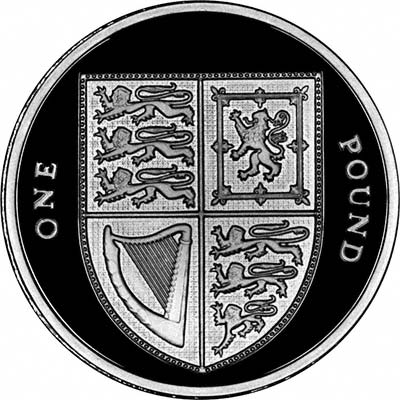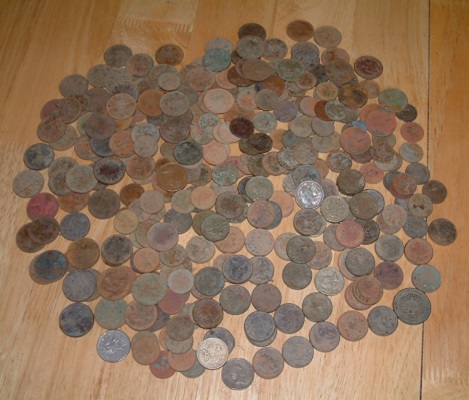| The Very Highest Quality Information... |
| Pound Coins and Legal Tender Laws |
|
 |
 |

|
Tesco refused to accept the £100 worth of coins and said some were discoloured and foreign and it would have taken too long to search through the money. Staff called the police when Mr Chamberlain declined to give them his name and address. No action was taken.
Tarnished coins
Mr Chamberlain told BBC News: "Police threatened to arrest me for trying to obtain goods by deception, which is ridiculous." Devon and Cornwall Police said no criminal offences were disclosed as it was purely a civil matter.
Mr Chamberlain said he repeatedly returned to the store to pay for the fuel, but staff would not accept the coins. After multiple visits he said the supermarket chain accepted his payment with alternative coins. Since the incident he said the tarnished coins has been accepted by a self-service checkout at a Tesco store.
The fuel cost £95, and Mr Chamberlain tried to pay for it with £85 in one pound coins, and the remainder with other coins. In a statement, the supermarket chain said: "We do everything we can to help our customers. In this instance, the customer attempted to pay with over £100 of coins." Tesco added: "It would have taken staff a long time to sort through the coins and it would have been unfair and inconvenient for other customers." Mr Chamberlain said: "I'm not a thief, I just wanted to pay for my diesel with my legal tender coins."
The BBC reported on 25th february 2011. Some newspapers and other media have almost certainly reported a less accurate, complete, or objective version.
Contrary to popular belief, shops or individuals do have the right to refuse payment in coins or notes, even legal tender ones, before a transaction has taken place, and to demand payment in whatever form they choose. However, when the debt has already been incurred (which, under the concept of 'invitation to treat' the vendor has already supplied a good or service prior to payment), then they are obliged to accept settlement of that debt in legal tender currency up to the amount authorised in law (which in the case of £1 coins, is unlimited).
Because Tesco allowed a debt to be incurred by providing the petrol before the customer paid for it, they have to accept the customer's offer to settle the debt using legal tender currency. If they refuse to accept this form or payment, they cannot lawfully sue the customer to recover the debt, or have him arrested and charged with any crime relating to non-payment of the debt, because he has already made a legally reasonable offer to settle the debt in a form recognised as legal tender throughout the UK.
In this case, Tesco is in the wrong and the customer is well within his legal rights to try and settle the debt in pound coins, and to take their petrol free of charge if they refuse to accept his money. By refusing to accept his lawful payment, Tesco has certainly provided excellent value for money to the customer for this particular transaction.
At a time of soaring petrol prices, every little helps...
What Does 'Legal Tender' Mean?
Legal tender has a very narrow technical meaning in relation to the settlement of debt. If a debtor pays in legal tender the exact amount he owes under the terms of a contract, he has good defence in law if he is subsequently sued for non-payment of the debt. In ordinary everyday transactions, the term 'legal tender' has very little practical application.
The Coinage Act 1971 states that coins with a denomination above 10 pence became legal tender for payment not exceeding 10 pounds, coins with a denomination not more than 10 pence became legal tender for payment not exceeding 5 pounds, and bronze coins became legal tender for payment not exceeding 20 pence. In the United Kingdom the only coins that are legal tender in an unlimited amount are the (Sterling) 1 pound, 2 pound and 5 pound.
Bank of England notes are also legal tender in England and Wales, but not Scotland, which issues its own notes (which are not legal tender anywhere, even in Scotland, but are commonly accepted anyway, including here at Chard).
At Chard we accept all sorts of payment, including pound coins in quantity, but also euros and dollars.
Euros and dollars are not legal tender in the United Kingdom but for the convenience of our customers we do accept these currencies as payment.
There is a large problem with the number of fake pound coins that are now in circulation. The BBC reported that the number of fake £1 coins in circulation has doubled in the last five years and now stands at more than 30 million. In fact, if Tesco refused the pound coins because they believed them to be fake, this may be a reasonable reason for their action. Even so, it seems very strange that the UK's biggest retailer employs staff who cannot tell the difference between genuine and fake pound coins. If they were dirty and discoloured, then it may have been genuinely difficult to tell what they were, and whether they were genuine.
Calling the police may have been rather heavy-handed of Tesco. For example, if Tesco had been prepared to accept them, subject to chaecking them later, it would be reaonable to expect the customer to give Tesco appropriate contact details.The episode does not seem to have been positive P.R. for Tesco.
If the proportion of fake pound coins in circulation gets greater, more retailers and shoppers may become reluctant to accept them in change. This could blow up to create a major crisis of lack of confidence in our money.
Whilst on the subject of coins and small change, we note that a number of large retailers have installed coin counting machines for their customers to use, but are appalled that they charge customers a substantial commission for changing these coins (I read 15% somewhere). Some retailers will only issue a voucher, and this has to be redeemed against purchases, and some stores impose a time limit. We would have thought large stores would stand the cost of handling these coins as a goodwill gesture to their customers, to increase customer loyalty, and footfall.
Update 21/03/2014
We received an email from Mr Chamberlain about the altercation with Tesco. He said that on another occasion he filled up a different car with diesel and attempted to pay using the maximum legal tender limits of coins, however the payment was declined. Tesco then called the police when he refused to give them his name and address. He is also testing out payment using the £20 coins, which you can read about here - Tesco Twenty Pounds.
Why not read our blog? When is Twenty Pounds Not Worth Twenty Pounds
Order Form - UK
Buying Coins
We also buy coins, please see our We Buy Coins page.
If you want to find the value of a coin you own, please take a look at our page I've Found An Old Coin, What's It Worth?
| ...at the Lowest Possible Price |
|
32 - 36 Harrowside, Blackpool, Lancashire, FY4 1RJ, England.
Telephone (44) - (0) 1253 - 343081 ; Fax 408058; E-mail: enquiries@24carat.co.uk The URL for our main page is: https://24carat.co.uk Web Design by Snoop |